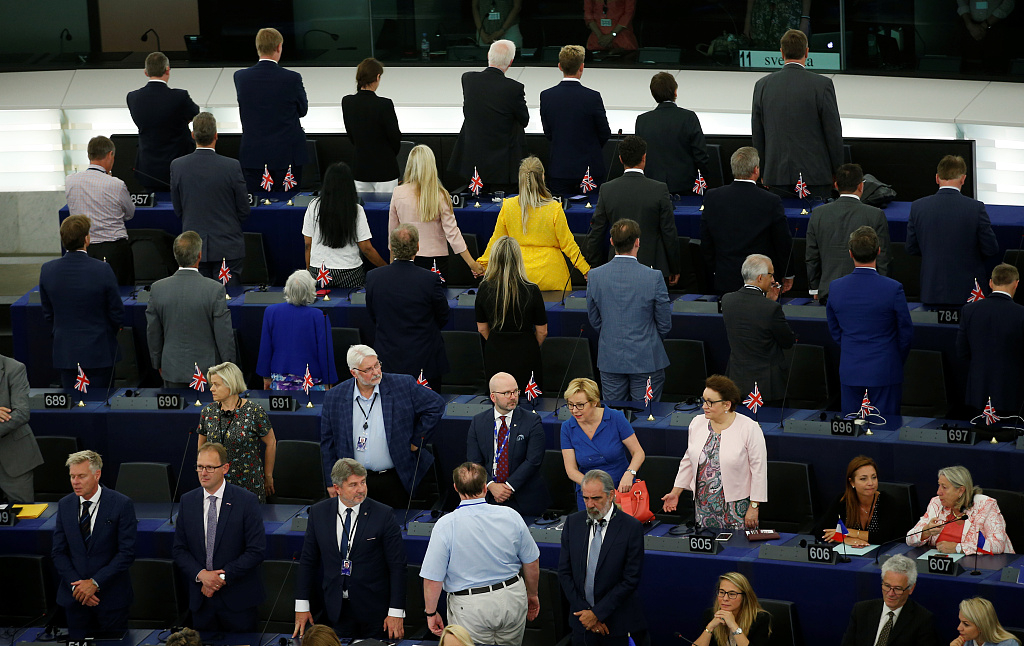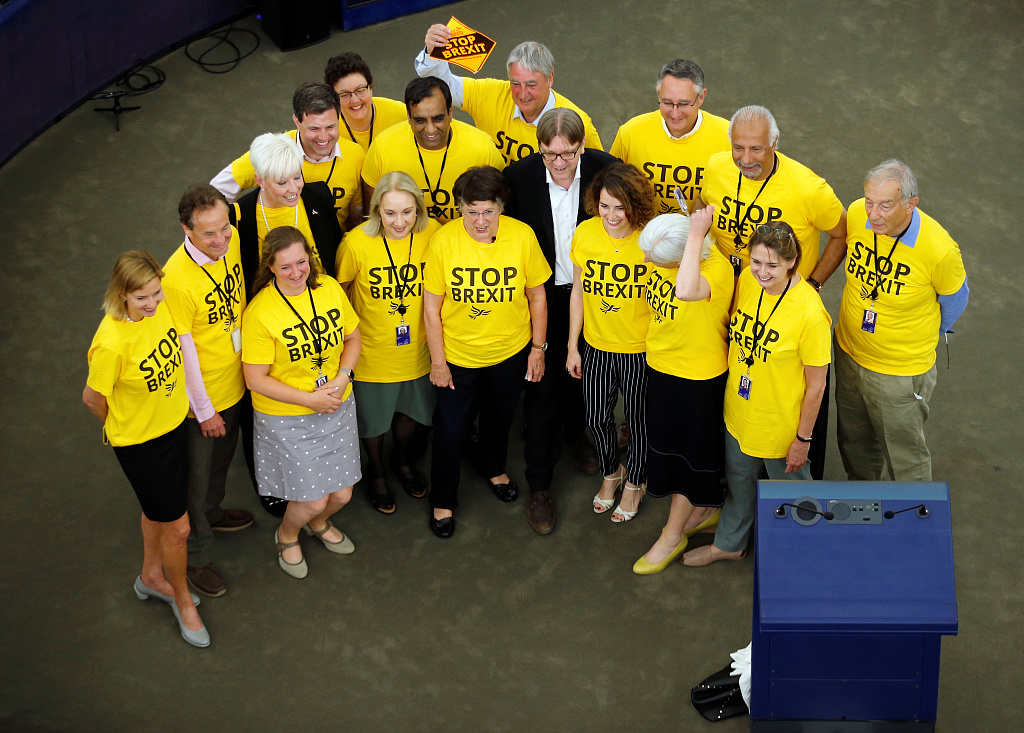

Editor's note: Thom Brooks is the dean of the Durham Law School and a professor of Law and Government at the Durham University. The article reflects the author's opinions, and not necessarily the views of CGTN.
Later this month, members of the Conservative Party will conclude their election of a new leader who will replace Theresa May as prime minister. While former London mayor Boris Johnson is widely tipped to defeat his rival foreign secretary Jeremy Hunt, the big question is whether a change in 10 Downing Street will bring about progress over stalled Brexit talks.
Both Johnson and Hunt have made various promises over their commitment to see Brexit happen by the EU's deadline of October 31. However, neither consistently gives any cast-iron guarantee that they would ensure Britain left the EU by then or he would resign.
This reveals a not-so-hidden truth about Brexit negotiations that nobody with any knowledge of the likely economic consequences of leaving without a deal is for it. Most support for a "No Deal" is for this to be an option in talks with the EU as a bargaining chip that will not be used. While these supporters are very critical of how parliament has ruled "No Deal" out as a bad way to negotiate, they do little better in giving lip service to an option they do not favor or want to happen come what may.

Members of the Brexit Party turn their back to the assembly as the European anthem is played during the first plenary session of the newly elected European Parliament in Strasbourg, France, July 2, 2019. /VCG Photo
There are a few MPs who believe "No Deal" is a welcome opportunity for drawing up new trade deals although there is no evidence of any progress on such deals to date. Not even the United States has given anything to help the government. With the UK increasingly desperate for any positive trade deal news, this only weakens their hand in succeeding as a result.
There are other MPs who say Brexit must happen because the public voted for it. They miscalculate voters who say they would prefer Brexit to an economic recession in theory to when Brexit-caused recession impacts them in practice. When negative consequences are felt, voters will not be too forgiving to those who made it a reality.
This then leaves the option of a "Deal." Both Johnson and Hunt claim they can do better than May at securing a more favorable deal. Neither says anything about what they would give the EU in return for removing various clauses they do not support. With no change in their negotiating red lines, the EU has said that it cannot change its offer until these lines move or are removed. This means the current deal will remain unchanged.
A new leader will have little time to make the impossible happen. Parliament is shortly due to have its summer recess. The end of October is only three months away. This is far too short to make any substantial progress that improves the deal for the British. This is especially true when considering the EU's leadership and parliament have been recently elected and so have a mandate whereas the UK's parliament has not.

Belgian Member of the European Parliament Guy Verhofstadt (C) poses with fellow MEP's wearing shirts with the slogan "Stop Brexit" during the first plenary session of the newly elected European Parliament in Strasbourg, France, July 2, 2019. /VCG Photo
If "No Deal" is not being genuinely contemplated and if a changed deal is impossible to deliver by late autumn, what next? A general election is almost certain for this summer. The main reason is that if a new election leads to a comfortable majority for any political party then it would be able to pursue Brexit or second referendum option because it would be able to win the vote. The big problem for May was that she lost her majority and so found herself unable to win votes to see her deal through. If Johnson or Hunt could win a majority, we might not see a new deal but they might be in a position to deliver May's deal.
The only problem with this is, of course, neither Johnson nor Hunt really supports this deal. This leads to the tentative conclusion that a general election is far more likely to happen than Brexit and any majority will be used as a mandate, if the Tories win, to renegotiate a new deal and so avoid leaving the EU without one. If this is correct, there will be no Brexit for at least a year or maybe longer.
The biggest hurdle for the Tories in delivering on these predictions is that the opinion polls show the public will punish the party if it does not deliver Brexit by the next election. And so it is a perfect storm: in order to succeed in delivering Brexit, the Tories need to win a majority in a general election where the public is likely to punish them. This helps explain why they have avoided a general election that might help win a majority and why the current gridlock continues. Until there is a general election, it is difficult to see this changing.
(If you want to contribute and have specific expertise, please contact us at opinions@cgtn.com.)

Copyright © 2018 CGTN. Beijing ICP prepared NO.16065310-3
Copyright © 2018 CGTN. Beijing ICP prepared NO.16065310-3